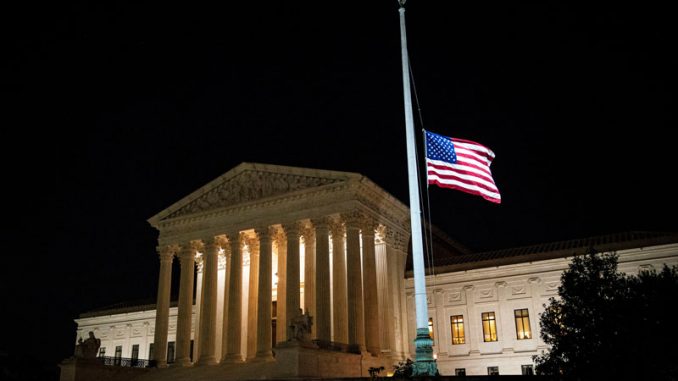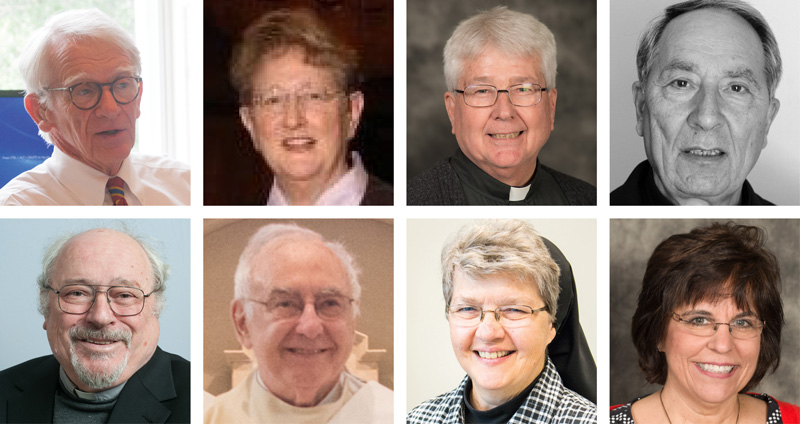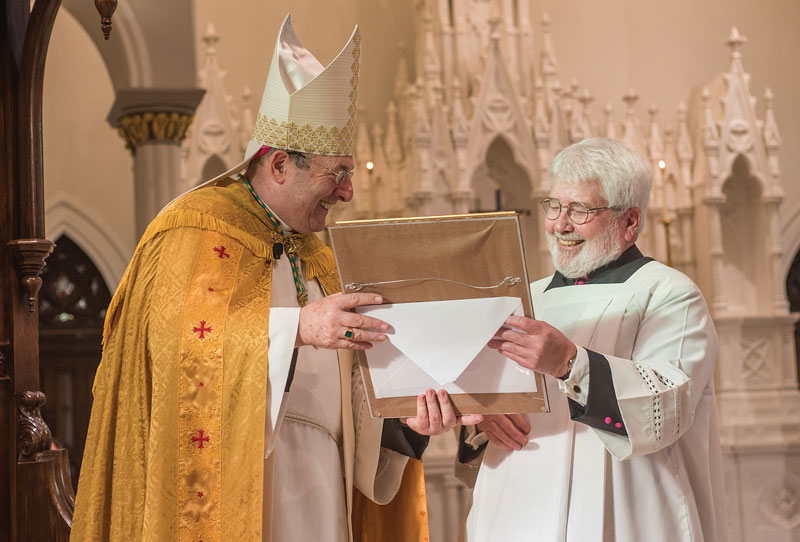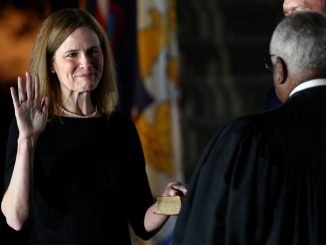
COLUMBIA—In 1970, a Columbia attorney contacted a law professor at Rutgers University in New Jersey and asked if she would be interested in helping with a case about to be tried in South Carolina.
That attorney was Jean Toal and the law professor was Ruth Bader Ginsburg, two women who went on to make history in their fields.
Toal became the first woman and the first Roman Catholic to serve as Chief Justice of the Supreme Court of South Carolina, while Ginsburg served on the U.S. Supreme Court until her death on Sept. 18, and is the first woman to lie in state at the U.S. Capitol.
During a candlelight vigil held outside the South Carolina Supreme Court building Sept. 24, Toal and more than 100 others gathered to pay tribute to the late justice.
A member of St. Joseph Church, Toal reminisced about that first meeting and how it led to a decades-long friendship, sharing meals and holiday celebrations as well as attending professional events together.
“Ruth was precise and demanding of herself, and her approach to often seemingly-unwinnable cases was strategic and patient,” Toal said.
A trailblazer for women’s rights, many of the landmark cases Ginsburg worked on during her long legal career dealt with equality for women, and Toal recalled that was the nature of the case which led her to contact Ginsburg in the first place.

In 1970, a law student named Vickie Eslinger applied to be a page in the state Senate. Despite having four senators as her sponsors, she was denied because she was a woman. Eslinger filed a lawsuit in response. Toal was working on Eslinger’s case when she contacted Ginsburg.
“I’d heard about her work as a professor at Rutgers and knew that she was interested in studying women’s rights issues, so I got in touch with her and she said she would like to help us take this on,” Toal recalled.
Ginsburg’s work eventually helped Eslinger win her case, and she became the first woman to serve as a page in the S.C. Senate. Eslinger went on to become an award-winning attorney and still practices in Columbia. She also spoke at the vigil, along with others.
Toal cited other cases Ginsburg worked on over the years and also told personal anecdotes of their friendship. She recalled trying to explain who baseball player “Shoeless” Joe Jackson was to Ginsburg, who was famous for her lack of interest in sports. (Jackson, a native of Greenville, was a star outfielder for the Chicago White Sox who was later banned from the game after a scandal involving a conspiracy to fix the 1919 World Series). Toal was also friends with Ginsburg’s husband Marty, who did all the cooking when the family had friends over for dinner.
“I asked what Justice Ginsburg’s favorite recipe was and he told me ‘We expelled Ruth from the kitchen 30 years ago!’” she said. “The only thing she had ever cooked, he said, was a tuna casserole that was decidedly not a family favorite.”
Toal offered other anecdotes and reflected on the fact that a phone call made in 1970 led to such a milestone friendship.
“Ruth was once asked how she would like to be remembered, and she said she wanted to be remembered as someone who used whatever talents she had to help repair tears in her society,” Toal said.
Catholic News Service reported that Ginsburg sided with Catholic Church leaders on anti-death penalty and pro-immigrant opinions, but differed with them in her support for legalized abortion, same-sex marriage and the mandate that contraception be covered in all health insurance plans.
Ginsburg also had what many describe as an unlikely friendship with fellow Justice Antonin Scalia, a Catholic, who disagreed with her on many issues in the courtroom, CNS reported. After his death in 2016, Ginsburg wrote: “From our years together at the D.C. Circuit, we were best buddies. We disagreed now and then, but when I wrote for the court and received a Scalia dissent, the opinion ultimately released was notably better than my initial circulation.”
After Scalia’s death, Msgr. Peter Vaghi, pastor of the Church of the Little Flower in Bethesda, Maryland, said the friendship of the two justices, on opposing sides in the court, represented “the way things used to be in Washington. … One can differ and disagree on issues, but still respect each other as individuals. We’ve come a long way from that,” he told the Catholic Standard, archdiocesan newspaper of Washington.
For more on Justice Ginsburg, visit https://www.catholicnews.com/ruth-bader-ginsburg-is-remembered-as-jurist-of-historic-stature/



